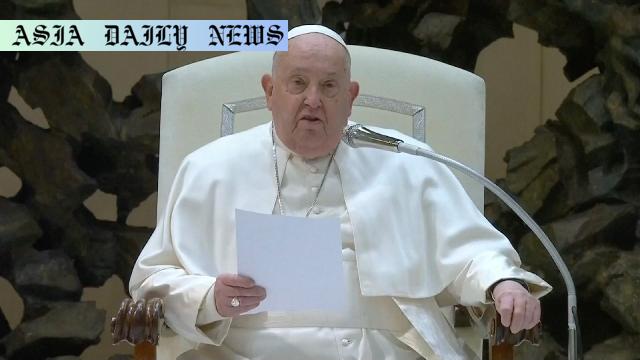Pope Francis: The Vatican has confirmed the pontiff has a polymicrobial respiratory infection, requiring continued hospital care.
- Pope Francis diagnosed with polymicrobial respiratory infection.
- The pontiff remains hospitalized for specialized care.
- Concerns grow about his long-term health and recovery.

Pope Francis Under Hospitalization for Respiratory Infection
Pope Francis is facing a significant health concern following his recent diagnosis of a polymicrobial respiratory tract infection. This diagnosis comes after he was initially hospitalized last week in Rome, where he was undergoing routine diagnostic tests and treatment for bronchitis. The Vatican confirmed that the situation required further medical intervention, including adjustments to his therapy, to address the complexities of his condition.
The Nature of Polymicrobial Infection
Polymicrobial infections involve the coexistence of multiple microorganisms within a single site, making the condition more challenging to treat. The complications arising from these infections often necessitate prolonged medical care and careful monitoring. In Pope Francis’s case, his advanced age of 88 adds to the concerns surrounding his ability to recover fully and swiftly from such illnesses. The Vatican has assured that though his condition remains stable and fever-free, the pontiff’s health requires sustained hospital-based treatments.
Growing Concerns Regarding the Pontiff’s Health
This recent development marks yet another instance of poor health for Pope Francis, raising alarms about his long-term well-being. Earlier in March 2023, he was hospitalized for respiratory problems. Additionally, he had remarked on feeling unwell earlier this month and had requested assistance in reading his prepared statements during several General Audiences. The repeated incidents point to weakening health, which has sparked speculations about his ability to fulfill his demanding papal responsibilities effectively.
Insights on the Vatican’s Response
Throughout this ordeal, the Vatican has been transparent about the pope’s condition, providing regular updates to assure the public of his progress. Officials stated that effective therapy adjustments are being implemented, and they expressed optimism about his recovery. Nonetheless, there is no clear timeline on how long the hospitalization will last. Observers commend the Vatican’s commitment to health transparency, especially concerning a figure as globally influential as Pope Francis.
Implications for the Catholic Church
Pope Francis’s health challenges bring forth significant implications for the Catholic Church. As the spiritual leader to over a billion Catholics worldwide, the pope’s stability is paramount. Questions have arisen as to whether Francis will consider delegation or adjustments to his workload, especially as demands of the office remain rigorous. The faithful have been urged to keep him in their prayers, underscoring the church’s collective concern over this development.
Conclusion and Hope for Recovery
Although the health concerns surrounding Pope Francis are serious, his stabilization offers a beacon of hope. His resilience in facing previous health setbacks provides optimism for his current recovery. As the Vatican continues to monitor and care for the pope, many are looking forward to his return to regular duties, albeit with necessary adjustments. For now, the church and its believers remain united in their prayers for his speedy recovery.



Commentary
Reflecting on the Pontiff’s Health Challenges
Pope Francis’s recent hospitalization for a polymicrobial respiratory infection brings to light the vulnerabilities of even the most influential leaders. At 88 years of age, the pope carries an immense burden of responsibility, serving as a spiritual anchor for millions. This episode should remind us of the humanity behind such public figures and the physical limits that come with advancing age. It also prompts questions about how leadership roles might need adjustments to accommodate health needs.
The Vatican’s Open and Reassuring Approach
The Vatican has demonstrated commendable transparency in updating the public about Pope Francis’s condition. Their prompt communication serves not only to keep the faithful informed but also to quash potential rumors or misinformation. This transparent approach builds trust and shows respect for the global audience deeply invested in the pontiff’s well-being. It also sets a precedent for other organizations on handling delicate situations involving prominent figures.
Hopes and Prayers for Recovery
In this moment of challenge, it is heartening to see global goodwill pouring in for Pope Francis. His previous resilience provides a ray of hope, but it also underscores the need for greater care and perhaps a reevaluation of his workload. The pope has been an active figure, championing social issues and advocating for change. However, this incident is a reminder that even the most dedicated leaders must sometimes pause to focus on their health.
The Role of Age and Leadership Dynamics
As Pope Francis continues his recovery, attention might soon shift to how his health will impact his future role. Will he delegate more responsibilities, or might we see a shift in the dynamics of papal leadership? These are questions warranting thoughtful deliberation. For now, let us focus on his recovery and the hope that he may continue to lead and inspire without compromising his health.